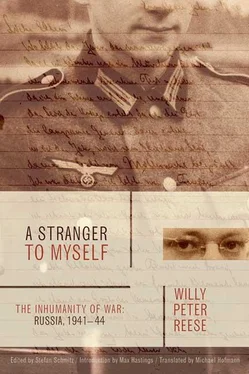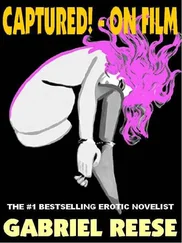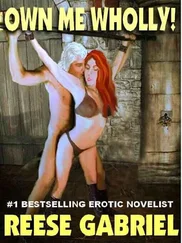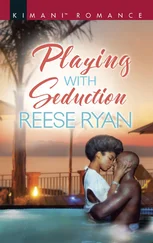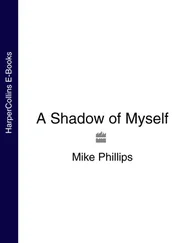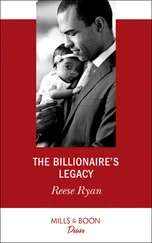Willy Reese - A Stranger to Myself
Здесь есть возможность читать онлайн «Willy Reese - A Stranger to Myself» весь текст электронной книги совершенно бесплатно (целиком полную версию без сокращений). В некоторых случаях можно слушать аудио, скачать через торрент в формате fb2 и присутствует краткое содержание. Город: New York, Год выпуска: 2011, ISBN: 2011, Издательство: Farrar, Straus and Giroux, Жанр: Биографии и Мемуары, military_history, на английском языке. Описание произведения, (предисловие) а так же отзывы посетителей доступны на портале библиотеки ЛибКат.
- Название:A Stranger to Myself
- Автор:
- Издательство:Farrar, Straus and Giroux
- Жанр:
- Год:2011
- Город:New York
- ISBN:978-1-42999-875-8
- Рейтинг книги:4 / 5. Голосов: 1
-
Избранное:Добавить в избранное
- Отзывы:
-
Ваша оценка:
- 80
- 1
- 2
- 3
- 4
- 5
A Stranger to Myself: краткое содержание, описание и аннотация
Предлагаем к чтению аннотацию, описание, краткое содержание или предисловие (зависит от того, что написал сам автор книги «A Stranger to Myself»). Если вы не нашли необходимую информацию о книге — напишите в комментариях, мы постараемся отыскать её.
is an unforgettable account of men at war.
A Stranger to Myself — читать онлайн бесплатно полную книгу (весь текст) целиком
Ниже представлен текст книги, разбитый по страницам. Система сохранения места последней прочитанной страницы, позволяет с удобством читать онлайн бесплатно книгу «A Stranger to Myself», без необходимости каждый раз заново искать на чём Вы остановились. Поставьте закладку, и сможете в любой момент перейти на страницу, на которой закончили чтение.
Интервал:
Закладка:
Willy Reese is not your typical “little man.” He is highly educated, a fanatical reader. He views himself as a poet and dreams of living in a free Germany. But his war experience is that of a normal draftee. And he was able to make a text out of it, in which this experience lives. He doesn’t want to judge, he writes to his parents on Advent Day 1943, “but allow the facts and my experiences to speak for themselves.” Much of what he writes in his manuscript is taken directly from his letters and diaries. He sets down what he experienced and what he felt. The literary form and ambition are unmistakable. Most of the details of his description are not possible to verify. It is possible that his report, written up from memory or with the help of sparse notes, may contain errors of fact. But it is beyond question that Reese wanted to show something absolutely genuine. He writes that war opens the “secret chambers of the soul.” His manuscript enables us to penetrate them.
STEFAN SCHMITZThe Soldier
The war began , and we saw God and his stars perish in the West. Death rampaged over the earth—he took off his mask, and his skull face grinned, chiseled with dementia and pain. We set out into no-man’s-land, saw him dance in the distance, and heard the throb of his drums at night. And so he brought in his harvest of corn and tares.
He transformed us with his being. He showed us other names and dimensions, and his dreams marked the picture of our time. His shadow fell across our path. His thoughts filled the spirit of the seeker, and sadness, suffering, and fear sprang up from the seed he had sown.
Forced marches and dangers gave rise to adventure, but the conversation of the angels stopped at our graves. We, the nameless and the unknown, the solitary and the lover, the wise man and the fool, the rich and the poor, took up the fight with our destiny, and under the constellation of necessity, we found a role for ourselves in resurrection and carrion. We danced around his altar like will-o’-the wisps: the killer, the doomed man, and the victim. We yearned to know his secrets, the purpose of his riddies, and the meaning of his games with masks and disguises. We talked in our sleep like dreamers, and such things as hope, faith, and love acquired weight once more. From the hell of storms of steel, faith in destiny, astral solitude, and out of readiness to die, we plunged into the abyss of eternity, and at the bottom we found God’s face among the wreckage and dust of our years.
In this way, death grew into our lives. In no-man’s-land, he kept watch.
The war began, but my life didn’t change. The great dying did not yet shake my world. I walked through the woods on the edge of the town and dreamed of foreign travel. I could smell sunshine in the leaves and sap; blue shadows hung under the ferns; noonday gold brushed the grass and mosses on my path. I loved beauty, the benediction and peace of the earth. The town sank in the smoke of twilight, the evening star was reflected in the river, and I walked home under a crescent moon and stars.
I was working in a bank. [2] Reese was a trainee with the Duisburger Bankverein.
Cash, checks, and bills of exchange occupied my days, but my evenings were mine.
Little amours passed like an old game of sighs and desires, smiles and sadness. Often I sat up past midnight with my friends, discussing God and the soul, talking about poetry, music, and love. We played with words and pictures, but we were also serious and impassioned young seekers and inquirers. We lived as masks of the spirit, tumblers of God, fools of love, beggars of desire, gypsies of the soul, and strangers to our own time.
At night I would read while the wind sang outside the darkened windows, and the hum of the city broke against the peace of my room like surf, till dawn rose on magic gardens and dreams and on the lies and philosophies of books.
I went to the theater, and I went to concert halls to listen to the music of Bach, Beethoven, and Brahms. The defeat of Poland meant less to me than a sonata or a poem. Most of my nights were given over to the fantastic tales and introspective legends I was writing at the time.
Then it was winter. Gardens and streets were snowed under, storms lashed the roofs, and the town sank in fog. The spirit went to sleep, like seeds, woods, and earth. I said goodbye to my adolescence. The paths of childhood, the peregrinations of youth, and all the roads of love led into the dark, and the hourglass shattered in my hand. I felt restless. Dreams, despair, and thoughts of death came to me. In my self-division, I started a cult of mirrors and suffered from my fate. I hastened through deserted streets on bright full-moon nights, read pernicious books out of sophistication and decadence, hid my face from God, and finally found myself at home in the void, a speck of dust in space.
Under my mask of intellectual exuberance, I lived like a ghost and sought refuge with whores and in wine. Fantasies of flight and deathly longings consumed me.
I met my Beatrice. Love taught me to identify beauty in decline; greatness and purity in ruins; dignity and hope in suffering; and blessing, transformation, and mercy in death. A new life began. Like a convalescent, I heard the March winds rushing, and I experienced the spring awakening of the earth. When I had to say goodbye to my love, I put my trust in God and the stars again.
The armies were waiting out by the west wall. I paid them no mind.
Like a storm wave, the war burst in upon the Netherlands, and I experienced the defeat of the Dutch like a vision. My thoughts revolved around art and humanism. There was eternity in what peoples and individuals had created. Every age and time made their contribution to the edifice, and whoever had fulfilled his duty could die easy. Names might lose their ring, those who had borne them might disappear as the grave digger mixed their corpses with earth and the wreckage of their works, but their spirits outlasted the ruins, their souls lived in the destruction and in the memory of future generations; there was no death. And so the war came to touch my sense of life. But when France laid down her arms, my life went on as though nothing had happened.
I went to the sea, to my favorite haunts on Darss. [3] Reese is referring to the Fischland-Darss-Zingst peninsula on the Baltic Sea.
I walked the beach in storm and sunshine. I lay on the dunes and dreamed to the crash of the waves, listened to the crickets strumming of hot noons while Pan slept. I sang and whiled away the hours. A stray love flitted along like a butterfly. I strolled through the woods, collected mosses, pine needles, and leaves. Grasses and flowers were experiences for me. I looked for bison, listened to the singsong of the wind, and watched the sun go down over the sea. The sky blazed in apocalyptic colors; bronze and gold tumbled over the waves. I read on cool starry nights and hurried through rain and storm. Still intoxicated by the richness of the earth, drunk with summer and youth, I returned to the city…
Autumn gave me an induction in death and its various fruits. I loved it already, a sleep without dreams, the extinguishing of the candle, the sweet comfort of nonexistence after the effort, the seeking and strangeness of living. In the confusion of my days, I yearned for its quiet, but I was afraid as well of death, which never took the veil off its reality, whose peace was alarming, whose silence droned like a primal storm, and whose mills churned night and day.
It was winter again. I saw war and peace as mere intervals in the history of the world. I lost myself once more in endless nighttime conversations about the futility of life, the mask of God, the magic of the devil, and the tragedy of existence. I did my job by day and waited for the call-up to bring the turn in my destiny. But in my thoughts and dreams, my hopes, aspirations, and desires, I was still living without reference to the war, and death was a stranger to me and only an occasional visitor.
Читать дальшеИнтервал:
Закладка:
Похожие книги на «A Stranger to Myself»
Представляем Вашему вниманию похожие книги на «A Stranger to Myself» списком для выбора. Мы отобрали схожую по названию и смыслу литературу в надежде предоставить читателям больше вариантов отыскать новые, интересные, ещё непрочитанные произведения.
Обсуждение, отзывы о книге «A Stranger to Myself» и просто собственные мнения читателей. Оставьте ваши комментарии, напишите, что Вы думаете о произведении, его смысле или главных героях. Укажите что конкретно понравилось, а что нет, и почему Вы так считаете.
